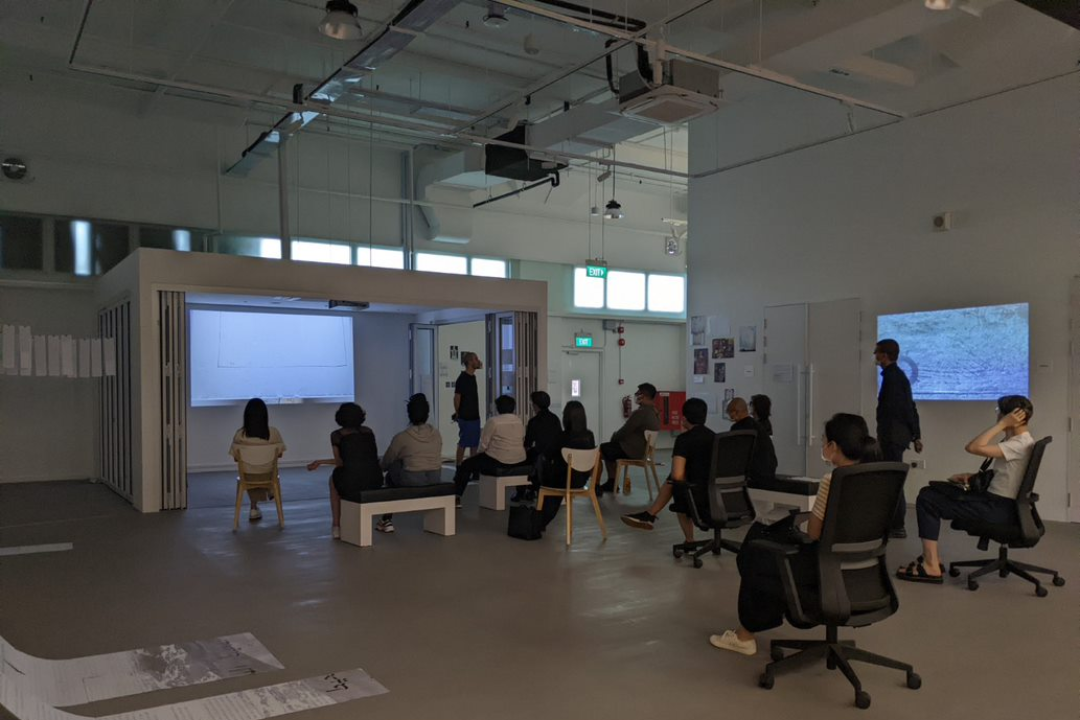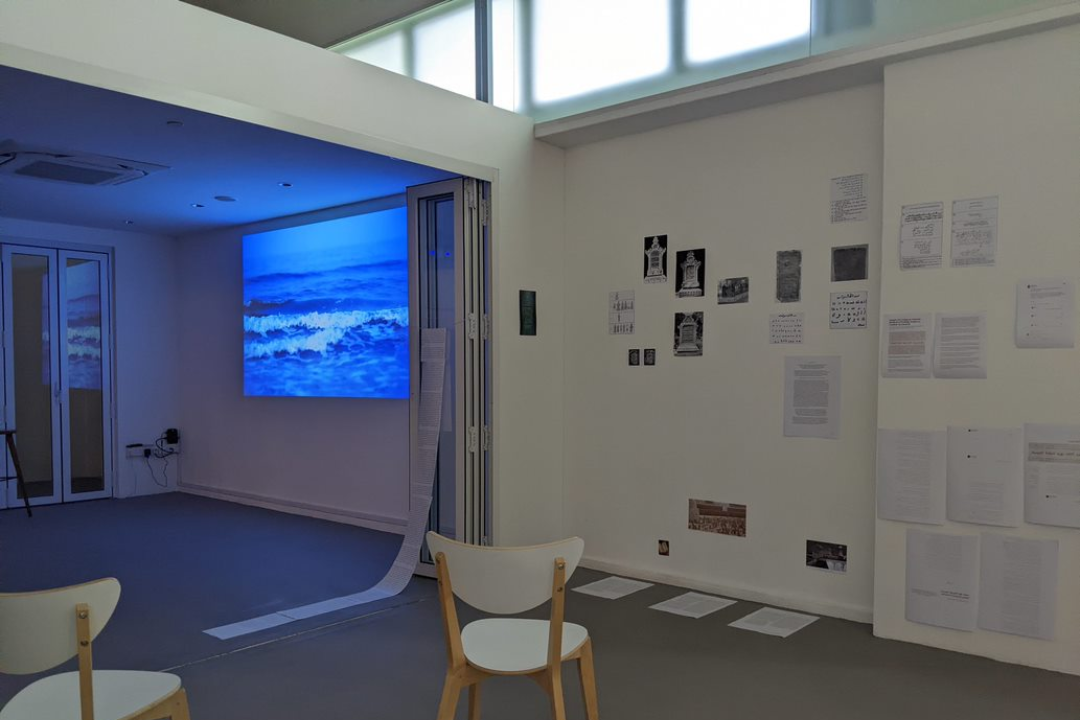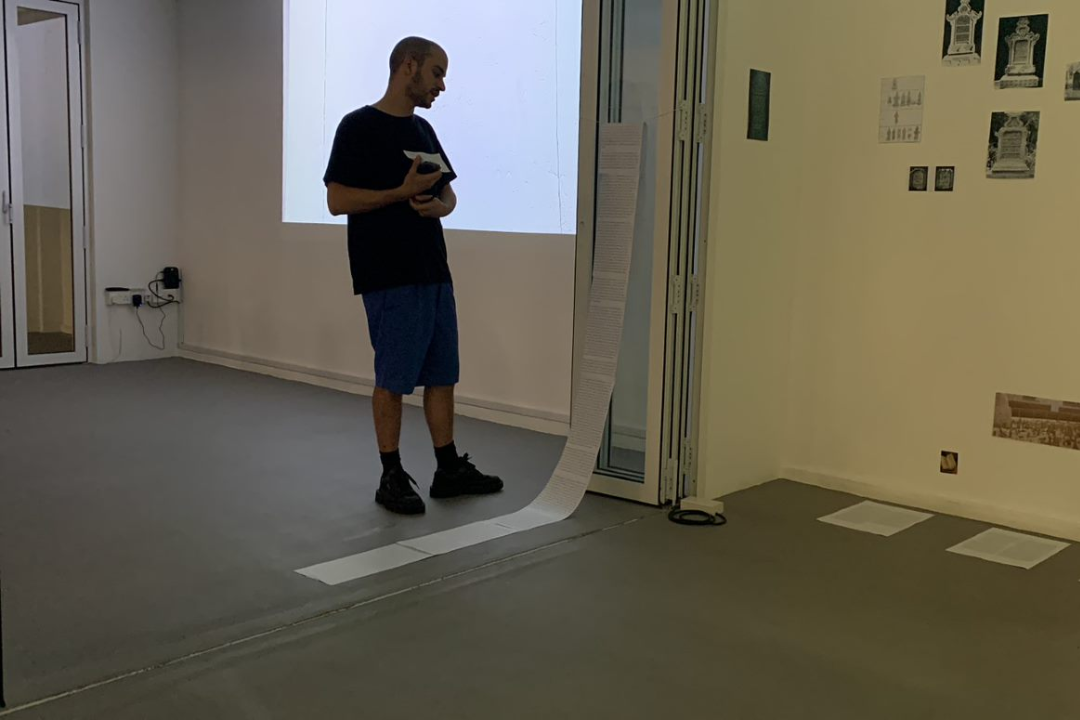In the first few centuries since the arrival of Arabic, its written form had no dots, marks or graphic inflexions to differentiate the sequence of muscular movements that the mouth was to perform. This notational absence resulted in certain letters being indistinguishable from one another. One symbol, for example, had as many as five alphabetical possibilities. The cursive form was further reduced from its sonic double due to the script not including the diacritical marks or vowel points, and thus denying the autonomy of the written word's semantic meaning. There was an almost total indeterminacy of annunciation, a logic that was a product of phonatory phonetic privilege, a linguistic practice in which time and tune took over the semiotic dimension of communication, rendering its captivity to the momentary disturbance of breath as absolute and necessary. It became an attachment whose logic burrowed deep into the word’s parasitical tie to its bodily host. One could not know things without hearing them, without being in their sound presence. It generates new possibilities on the social activism of abstract signs in the tactical and sophisticated mechanisms used to bind knowledge with its corporeal embodiments and be hosted among a textual community. A form of hospitality finds its form in Ajami, a word literally that denotes ‘a foreign arrival’, and the name given to the use of Arabic letters within the West African linguistic tradition. Similarly, further east, along the winds whistling across the Indian Ocean, Jawi, which literally translates to weather, was the name given for the Arabic notation used by the people who lived in Southeast Asia or the Jawiyya, those ‘below the winds’. Scattered Scripts will compose of a series of readings, in a typographic travel across different moments and times, to track the smudges and slurs that colour communication. The event will inform a draft proposal for how letters journey and the political possibilities encoded in inscription.



